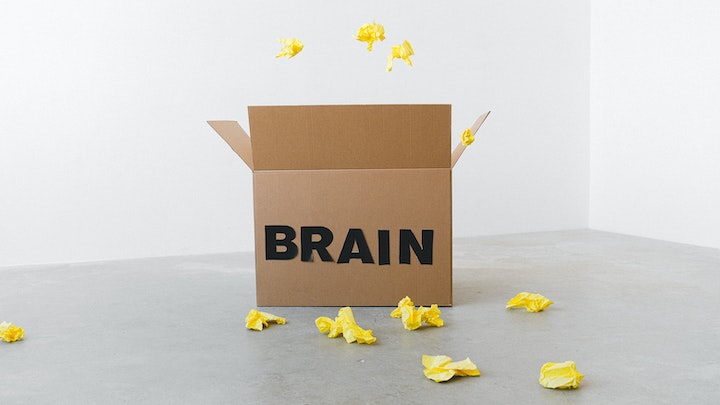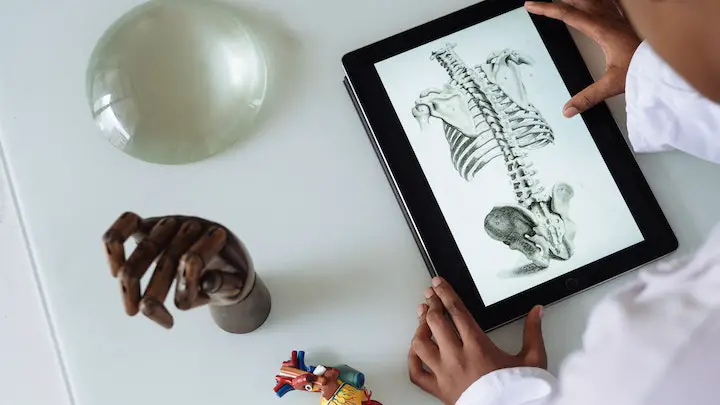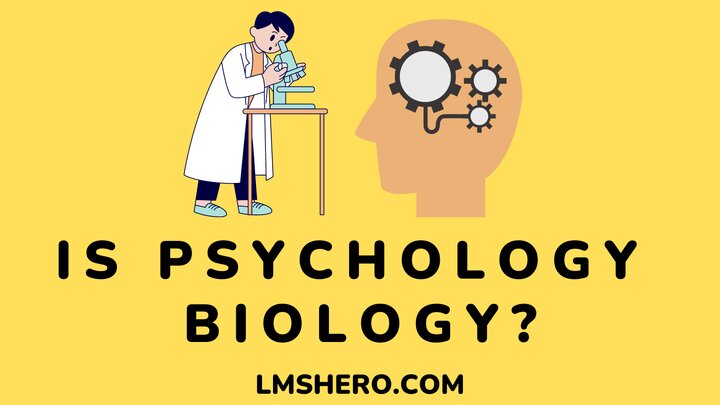Whether psychology is a branch of biology has been debated since its inception. The early focus of psychology was on the soul and mind, which made many people question its scientific status.
In recent years, however, the focus of psychology has shifted to the study of the brain and behavior. This shift has led many to believe that psychology is, in fact, a branch of biology.
So, is psychology biology? The answer is no. Psychology is not biology. In its early years, psychology was not considered a science. However, focusing on the brain and behavior has led many to believe it is.
To clarify the fuzz surrounding this common misconception, let’s explore the relationship between psychology and biology in more detail in this article.
What is psychology?
It is commonly believed that psychology is simply the study of the human brain and its workings. However, this is not the case. Psychology is the study of the inner workings of the human mind.
Some refer to it as the science of understanding how thoughts, feelings, and emotions influence our behavior. It’s a way of studying how people cope with their problems and manage their emotions.

It’s the study of understanding why people think, feel, and behave as they do. Psychology is about understanding people and assisting them in becoming the best versions of themselves.
It is a wide and complex field with many different subfields. Some of the essential areas of psychology are:
- Clinical psychology
- Social psychology
- Cognitive psychology
- Psychiatric psychology
- Pastoral psychology
- Developmental psychology
What is biology?
Biology is the study of life, from its origin and evolution to its current understanding. It investigates how living things (including humans) function and interact.
It encompasses everything from the basic mechanisms that cells use to grow and reproduce to systems biology, which looks at how different components of the biological system interact.

Biology is one of the oldest sciences, and its insights have led to significant innovations in fields like medicine and agriculture.
It encompasses various scientific disciplines, including anatomy, physiology, biochemistry, genetics, parasitology, plant pathology, entomology, and ecology.
Psychology examines how emotions, thoughts, and behaviors are associated, while biology examines the origins, development, and functions of the body and brain.
The relationship between psychology and biology is complex and multi-faceted. At their core, both disciplines study the human mind and body. Psychologists focus on understanding individual behavior and how that relates to individual experience.
Meanwhile, biologists have been exploring the genetic origins of behavior and the mechanisms by which cells and tissues function.
In short, the field of psychology is closely related to the field of biology. Together, these two fields help us better understand human behavior and its underlying physiological processes.
For example, psychology researchers often use cognitive neuroscience techniques to study how the brain processes information. Similarly, biologists may use psychological concepts to understand human behavior better.
Psychology and biology in the real world
In the popular imagination, psychology, and biology are separate disciplines that study different parts of the human condition. But this is not the case in the real world. Psychology and biology are tightly integrated.
Today’s world is full of uncertainty and stress. We’re constantly bombarded with information, and our lives seem never straightforward.
And while there are things we can’t control—such as the stock market—there are also many things we can do to help improve our mental health and well-being.
One way to achieve this is to learn about psychology and biology. These fields study the inner workings of the human mind and body and can help us understand why we experience our emotions and thoughts.

They can also help us develop coping mechanisms for dealing with stress and anxiety and increase our ability to balance work and life.
While biology helps you understand how the body works, psychology helps you understand how people think and feel. It tells you how to motivate them and how to handle conflicts. And it can also help you predict how they’ll behave in the future.
In addition, understanding these two fields can help us better understand ourselves. This knowledge can help us become more confident and fulfilled and make peace of mind in difficult situations.
Like most people, you’ve always considered psychology and biology separate fields of study. But in the real world, they’re never separable. Every decision you make is influenced by both psychology and biology.
Biology and psychology in research
The relations between biology and psychology in research can be described as reciprocal. Biological processes can influence psychological processes and vice versa.
Additionally, both disciplines feed off each other, providing new insights into the other field. Biology and psychology in research often intersect because many psychological phenomena tap into neurobiology and vice versa.
For example, pain can be a response to physical or emotional stress, and neurobiology has been implicated in the development and modulation of pain.
In addition, many psychological therapies are effective for treating anxiety, depression, and addiction.
The biological basis of psychology
Biological research has made huge strides over the past few decades and has helped revolutionize how we view behavior.
In most cases, biology shapes psychology in profound and sometimes far-reaching ways, and psychologists should be aware of this. Consider the following examples:
1. Biological factors influence the way emotions are experienced and expressed. For example, neurotransmitters like serotonin can affect how we feel.
2. Biological changes can affect how our brains function. For example, traumatic experiences can lead to changes in the way the brain processes memories.
3. Biology can help us understand why people behave as they do. For example, researchers have found that genetics plays a role in determining whether someone is prone to addiction.
4. Biological factors can play a role in mental health disorders. For example, conditions such as schizophrenia are thought to be caused by genetic and environmental factors.
Biological psychology is the attempt to discover biological mechanisms that underlie psychological phenomena. While many exciting advances have been made in this area, much more research is needed.
In short, psychology cannot be divorced from the biological underpinnings on which it is based, as these would otherwise be illusory.
You must also know that psychology cannot be reduced to the study of cognitive processes, nor can cognitive processes be divorced from the neurobiology of the brain.
FAQs
Who founded biological psychology?
The work of Ernst Weber and Gustav Fechner inspired the beginning of modern psychological research in the late nineteenth century. They used methods from physiology to examine psychology in 1992.
What are the biological psychology examples in real life?
An example of the biological psychology approach would be the fear response. The fear response is a set of reactions that give way to different behaviors based on an individual’s biology.
Is biology needed for psychology?
Yes, biology is essential for psychology because psychologists rely on naturalistic observation and experiments to understand human behavior.
After all, without biology, we can’t accurately measure or understand how people think, feel, and act.
Is psychology a branch of biology?
While both disciplines have their benefits, it’s important to remember that psychology is not a branch of biology and is not interchangeable. Neither field is complete; they need each other to be truly effective.
Wrapping up: Is psychology biology?
While both fields increasingly rely on each other to advance understanding, psychology is not biology. They’re both influenced by each other, but they’re also independent.
People often think that biology determines everything about our psychology or that psychology determines everything about our biology. But this isn’t the case.
However, by identifying and understanding the relationships between psychological processes and biological mechanisms, we can build a stronger foundation for investigating how different forms of mental illness may be caused or alleviated.
With this knowledge, we can develop more effective treatments and interventions for patients suffering from psychiatric disorders.
I hope you found this article. If so, you should also check out the degree pages of the website to learn more about different degrees and how they relate to each other.
Thank you for reading.







